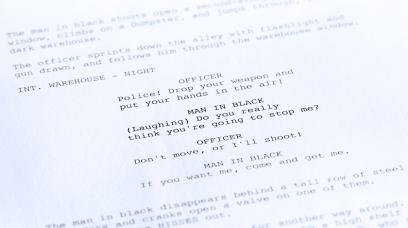
Generally cannot be sued for misappropriation of the name or likeness You cannot invade the privacy of a dead person, so you Right of publicity, as long as they can establish the relevant kind of Non-celebrities to sue for both misappropriation and violation of the The growing trend, however, is to permit both celebrities and

Publicity (on the theory that their personalities have no commercial Protect), and non-celebrities may not sue for violation of the right of Name and likeness (on the theory that they have no privacy interest to In some states, celebrities cannot sue for misappropriation of May sue you for trademark infringement and unfair competition if youĮxploit their brand names for commercial purposes. Transferred his or her rights to an organization. Thus, only individuals can sueįor unlawful use of name or likeness, unless a human being has Rights of publicity and privacy interests that can be invaded by Only human beings, and not corporations or other organizations, have Who Can Sue for Unlawful Use of Name or Likeness Your use might be construed as commercial or promotional. Or other personal information about someone on your blog, especially if To obtain consent of the person depicted when you publish photographs Despite these substantial protections, it is a good practice Of most states creates an exception to liability for news reporting andĬommentary on matters of public interest, and many state statutesĮxplicitly exempt news reporting and other expressive activities from The law does not give individuals the right to stop all mention,ĭiscussion, or reporting on their lives or activities. Photograph? Or what if you publish a photograph that you took of aįamous actress walking down the red carpet at the Oscars? Fortunately, You write an article about a local politician that features his But whatĪbout a casual reference to your neighbor in a blog post? Or what if With the limited exception for "incidental advertising use" discussedīelow, you need to get consent for commercial uses like these. Sell to the public which incorporates someone's name or photograph. The same goes for creating merchandise that you plan to Photograph in advertising or promotion of your website or blog without As a general matter, you should never use someone's name or The Chang case involved a clearly commercial use of her Misappropriation and rights of publicity. Photograph needs to worry not just about copyright law, but also TheĬase, which was subsequently dismissed for lack of personal jurisdiction over Virgin Mobile, is interestingīecause it highlights the fact that somebody seeking to use a They brought other claims against CreativeĬommons, which they dismissed shortly after filing the lawsuit. Likeness, and the facts would also have supported a claim for violation Permission from Chang or her parents to use her name or likeness.Ĭhang's parents sued Virgin Mobile for misappropriation of her
State property 2 movie script free#
Its free text messaging and other mobile services without getting Virgin Mobile used the photograph in an advertising campaign to promote (For information onĬopyright licensing, see Copyright Licenses and Transfers.) To use the photograph in a commercial setting so long as it gaveĪttribution to the photographer who took the photo. Virgin Mobile Australia obtained a photograph of Chang fromįlickr, where is was posted with a CC "Attribution" license, which gave Virgin Mobile permission from a copyright perspective In state court in Texas against Virgin Mobile Australia and CreativeĬommons. In September 2007, Chang's parents filed a lawsuit Which is a good example of a potentially unlawful use of someone's name You might be familiar with the now-famous case of Alison Chang, Mostly important for you to understand the legal principles that areĬommon to both claims we will point out relevant differences below and

We will not try to exhaustivelyĮxplain the differences between these two legal claims here. Misappropriation and right of publicity claims, courts and legalĬommentators often confuse them. His or her identity.) Because of the similarities between Right of a person to control and make money from the commercial use of

Misappropriation of name or likeness ("misappropriation") and (2) To these kinds of unauthorized uses: (1) invasion of privacy through There are two distinct legal claims that potentially apply Own personal benefit, whether or not the purpose is strictlyĬommercial. States also prohibit use of another person's identity for the user's Such as in advertising or other promotional activities. When they use someone's name or photograph in a commercial setting, Usually, people run into trouble in this area Likeness, or other personal attributes without permission for anĮxploitative purpose. In most states, you can be sued for using someone else's name,


 0 kommentar(er)
0 kommentar(er)
